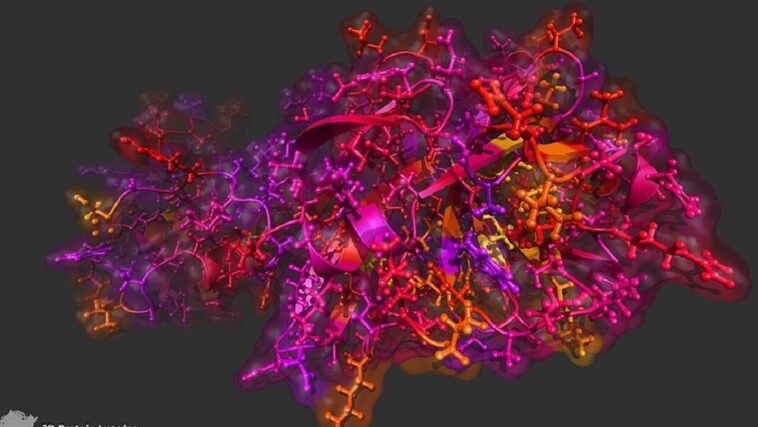The good news is that highly effective COVID vaccines are coming to the Skeena region. The bad news is that we still have a long road ahead before the pandemic is under control–and there is still potential for things to get worse over the holidays before they get better.
That’s according to two of Canada’s foremost infectious disease experts, Dr. Tara Moriarty and Dr. Krishana Sankar, who answered your most burning vaccine questions Thursday evening as part of Skeena Strong’s fifth ‘Fighting COVID In The Skeena’ event.
In case you missed the event, watch the whole thing here.
Here is what Moriarty and Sankar had to say in response to your questions about the months ahead.
- When will the vaccine actually get to the Skeena?
Dr. Moriarty: “The problem is it needs two doses and it also has to be stored at exceptionally cold temperatures with specialized freezers. The logistics of getting this out to people are tough. That’s going to get out to people a bit more slowly than you would expect. The Moderna vaccine, if it’s approved, will be much easier because it doesn’t need freezers that are as cold, and it’s going to be much easier to ship outside of major urban centers. It will be much easier to get it to smaller places because it can be transported under normal food transport kind of conditions and freezers and feature tracks.”
“The details to that are going to be province specific. But we’re still talking about probably at least a couple of months before regular people start to get it. I would say we have to keep listening to our public health officials right now in B.C.”
2. Does having an effective vaccine mean the pandemic will be over soon?
Dr. Moriarty: “I like to first sound a note of caution. There are many millions of people across the country that need to be vaccinated. It’s actually going to take quite a while before they get to everyone. It could take as long as a year and a half for this to happen, maybe by the end of the summer, but we’ll be very lucky if it does. Right now, we have to be extremely careful because no one is immune yet. No one has been vaccinated.”
“Both of the vaccines have to be given in two doses. You have to have one, and then you have to have a second one later on for it to be fully effective. Even once people are vaccinated, it could still be a month, maybe longer before they’re fully protected.”
“Also, the highest priority groups are our staff working in long-term care, and people living in long-term care and residential care and healthcare workers, because these are the people who are most at risk of dying from COVID-19 and people who are at risk of contracting it. We need every healthcare worker to be healthy as much as possible. It’s still going to be quite a while before most of us are vaccinated.”
3. Do the vaccines mean we can have a normal Xmas?
Dr. Moriarty: “Things can still get really out of control and we can have more and more cases if people let up their vigilance. That’s made worse actually by the holidays that are coming. This is the major concern because many people are still saying that they’re going to travel, which is really not safe to be doing. You can be carrying COVID from one place to another.
“People should only be socializing with people in the same household under the same roof. If they don’t, because this is such a festive season where people visit a lot and they congregate a lot, we risk even more cases spreading even faster.”
“It’s extremely important right now that people are probably even more careful than they’ve ever been. Probably by about the middle of January, we’re going to hit the same total number of deaths across Canada that we had in Wave One.”
4. How can we trust that the vaccines will actually be effective?
Dr. Moriarty: “The Pfizer vaccine that is already approved is 95% effective if people have two doses. That is an extremely high efficiency for a vaccine. In the Pfizer trial, there were over 40,000 people enrolled in that clinical trial. Now just as a baseline for people to understand, typically in phase three clinical trials, regulatory bodies would approve that if you have, for example, several hundred to approximately 3,000 people enrolled in trials.
“But because COVID has had such high community transmissions, we’ve had so many people able to take part in these trials. With having about 43,000 people enrolled in it to get a number of 95% efficiency is actually quite amazing. It means it’s extremely effective at avoiding or preventing severe COVID 19 disease.”
5. What type of negative side effects are there from the vaccine?
Dr. Sankar: “The most common adverse reactions for the Pfizer vaccine tended to be mild to moderate. Things like headaches and fatigue and fever. The more severe reactions also included headaches and fatigue. But this is quite a small number. Between those people who received the vaccine and people who received the placebo there was only a 0.5% difference in reactions. Which means that it’s a very minimal number of people within the trial that actually had any kind of serious adverse reactions.”
6. Can you take the vaccine safely if you’re pregnant?
Dr. Shankar: “Right now, the recommendation is that women who are pregnant or breastfeeding might want to wait to take the vaccine. This is just because they would like to have more data. For example, it hasn’t been tested extensively in kids yet, like all of these trials have to happen. The faster it goes out, the more we will know about the safety in pregnant nursing women.”
“What I would say is that if you’re pregnant or nursing, talk to your doctor about it, and your doctor will be aware of where we are, at that point, and whether we know it’s safe, because this is evolving really quickly, there are thousands and thousands of people around the world getting vaccinated, some will turn out to be pregnant.”
- Will Indigenous communities get priority access to the COVID vaccine?
Christine Smith-Martin, moderator for ‘Fighting COVID in the Skeena’ states: “Indigenous communities have advocated for priority access because we have a high incidence of autoimmune disease. As well, we are very family oriented and many of us share multi-generational households with elders.”
Dr. Moriarty: Indigenous communities are prioritized where they have requested it because because in general Indigenous peoples are more at risk of serious disease. She states: “That it makes sense from an ethical and medical standpoint. Indigenous communities are also more susceptible to COVID transmission because of the housing issues.”




